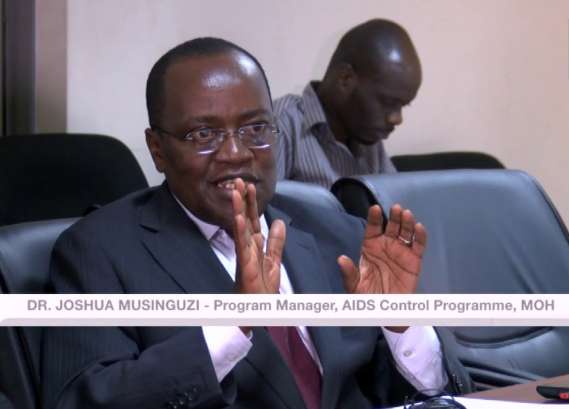The Ministry of Health will this month start rolling out the new HIV drug Dolu-te-gravir, to all the health facilities across the country, as part of efforts to eradicate the disease by 2030.
The drug, shortly known as DTG, has reportedly been linked to birth defects in HIV positive women. Kenya’s Director of Medical Services, Jackson Kioko in June 2017 banned the drug. The ban followed an advisory by the US Food and Drugs Administration and the European Medicines Agency that new studies indicate that women with HIV taking DTG at the time of conception or during the first trimester of pregnancy appear to be at higher risk of giving birth to babies with neural tube defects. Neural tube defects occur early in pregnancy when the spinal cord, brain, and related structures do not form properly.
But Dr. Joshua Musinguzi the Programme Manager Aids Control Programme at the Ministry of Health Uganda says the drug is cheaper, compared to other drugs currently on the market, and will be accessible to all persons living with HIV.
He also reveals that they have set new guidelines on HIV testing, and also new drugs for children, and expect that by the end of next year 560,000 patients will be enrolled on the new drug, whose distribution will rolled out in phases.

A senior official at the ministry supports the roll out of DTB and told TheUgandan that since the defects occur early in pregnancy, they should just use the drug and when they feel they want to have a baby, they consult their service provider to switch to another drug and after giving birth and breastfeeding they continue with the drug.
Issues with Septrin
Uganda has stopped the compulsory prescription of Septrin to persons living with HIV.
Septrin also known as cotrimoxazole is an antibiotic drug that is used in HIV management to curb the development of opportunistic infections that might occur. The drug has been compulsory for all persons living with HIV.
According to the ministry, the drug is being suspended for some groups of people because it is useless for persons who have been on treatment for a long time and have suppressed their viral load.
Only selected groups of persons living with HIV will be given the drug. They include pregnant women, new patients and children below 15 years.
According to the ministry, the drug is being suspended for some groups of people because it is useless for persons who have been on treatment for a long time and have suppressed their viral load.
Only selected groups of persons living with HIV will be given the drug. They include pregnant women, new patients and children below 15 years.











